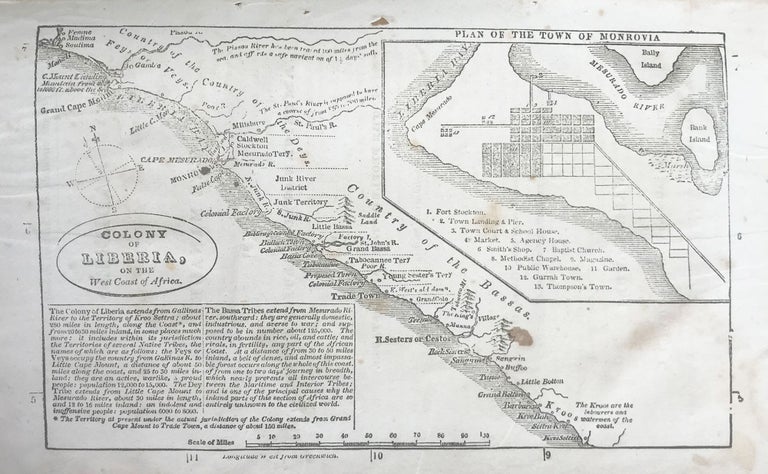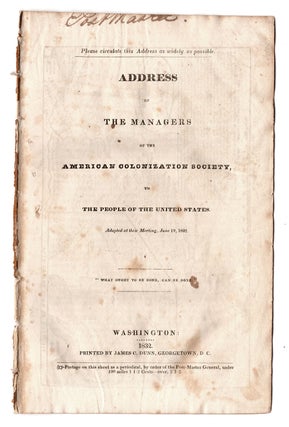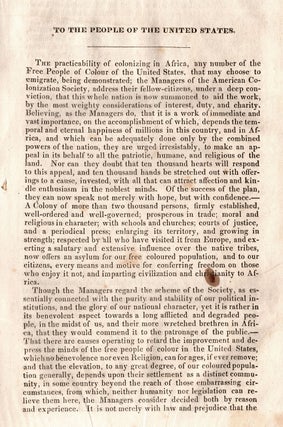Address of the Managers of the American Colonization Society, to the People of the United States. Adopted at their Meeting, June 19, 1832. "What ought to be done, can be done."
Washington D.C.: Printed by James C. Dunn, Georgetown, D. C., 1832. 8vo (9” x 5.5”), disbound. 16 pp., map of the Colony of Liberia on verso of title page, with inset of a Plan of the Town of Monrovia, overall map dimensions 4” x 7”; early ink annotation at head of title page reading “Postmaster.” CONDITION: Good, occasional foxing, tiny puncture to margin of map, but no losses. A scarce introduction to the American Colonization Society's project, published in an effort to generate funds to settle emigrants in Liberia, illustrated with a map of the Colony with an inset of a Plan of the Town of Monrovia. The American Colonization Society was established in 1816 to relocate formerly enslaved African Americans to a settlement in Africa. Present at the founding meeting was newly-elected president James Monroe, Supreme Court justice Bushrod Washington; Senator (and future president) Andrew Jackson, Francis Scott Key, senator Daniel Webster, and congressman Henry Clay, among others. The Society's efforts led to the founding of the African nation of Liberia. The capital, Monrovia, was named in the president's honor. This report, published a year after James Monroe's death, describes the colony and its founding. Covered are Liberia’s fertility and agriculture; the climate and health of the settlers; commerce; the attempt of the natives to destroy the infant colony; the education and moral state of the colony; and the establishment and form of government. Other topics covered include the slave trade (“origin, character, and extent”); the influence of the colony in suppressing the slave trade and civilizing the native tribes; progress of the cause of the society in America; the number of individuals colonized at present (2,061 over the course of twenty-three expeditions); the estimated expense of colonization; the number of auxiliary societies to the colony; various testimonials concerning the colony, and more. The text concludes with a fundraising appeal to pay for the travel expenses of new emigrants. The Appendix covers the origin and early proceedings of the Society. REFERENCES: American Imprints 10899; Sabin 81763; LCP
Item #7273
Sold




